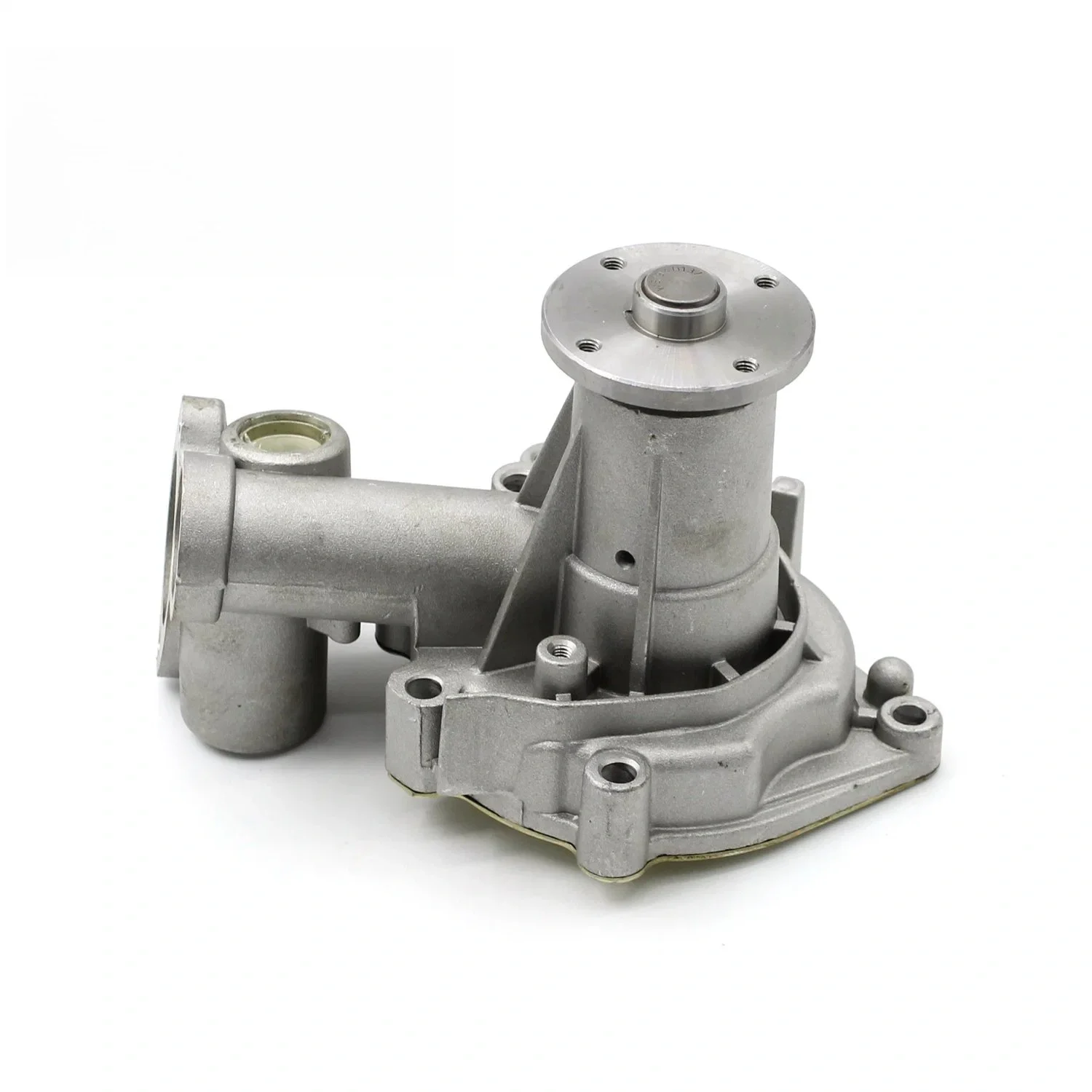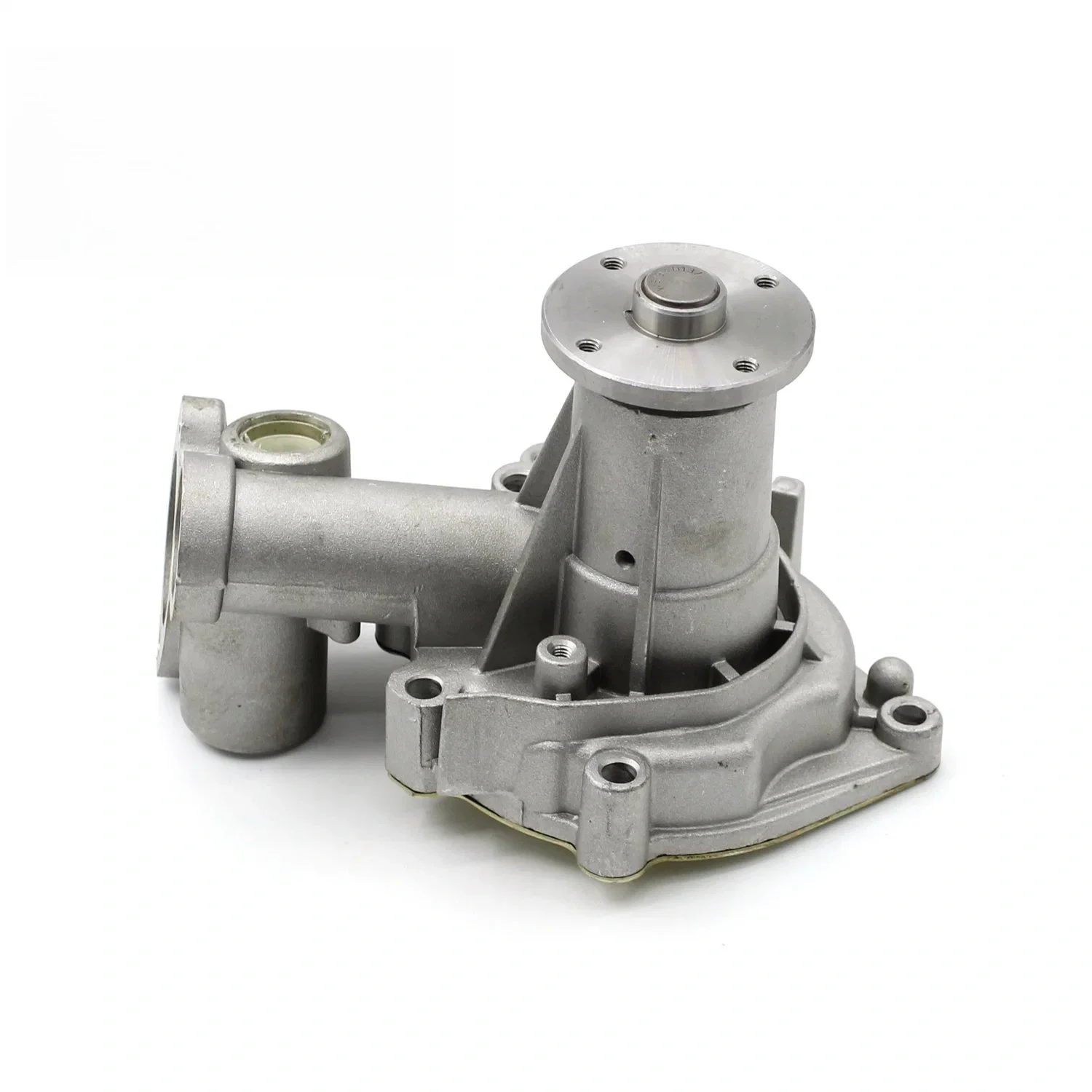The automobile mechanical water pump, as a crucial component in the cooling system of internal combustion engines, plays a vital role in maintaining optimal engine temperatures. By circulating coolant through the engine block and radiator, it ensures that the engine operates within safe thermal limits, preventing overheating and ensuring efficient power delivery.

Working Principle
Basic Mechanics
At its core, the automobile mechanical water pump is a centrifugal pump driven by the engine's crankshaft via a belt or chain. It consists of several key parts: the impeller, housing, shaft, bearings, and seals.
-
Impeller: The rotating component that imparts kinetic energy to the coolant. As the impeller spins, it forces the coolant outward, creating a pressure differential that draws more coolant into the pump.
-
Housing: Encases the impeller and directs the flow of coolant. It has inlet and outlet ports strategically positioned to facilitate smooth coolant circulation.
-
Shaft: Connects the impeller to the drive source (typically the engine's crankshaft).
-
Bearings: Support the shaft, enabling smooth and efficient rotation.
-
Seals: Prevent coolant leakage from the pump assembly.
Operational Cycle
When the engine starts, the crankshaft rotates, driving the water pump via the timing belt or chain. The impeller begins to spin, drawing coolant from the radiator (or reservoir) through the inlet port. As the coolant is propelled outward by the impeller's blades, it gains pressure and velocity, entering the engine's cooling passages. Here, it absorbs heat from the cylinder block, cylinder head, and other components. The heated coolant then flows back to the radiator, where it sheds heat to the atmosphere via convection and radiation. This continuous cycle maintains a steady flow of coolant, effectively regulating engine temperature.
Main Features
Reliability and Durability
One of the primary selling points of the mechanical water pump is its reliability. Constructed from durable materials such as cast iron, aluminum, and high-performance plastics, these pumps are designed to withstand the rigors of constant operation under varying conditions. Regular maintenance, such as belt tension adjustments and coolant changes, further extends their service life.
Efficiency and Performance
Efficiency is another critical aspect. Modern water pumps feature optimized impeller designs and precision-machined components that minimize friction and energy loss. This translates into better fuel economy and reduced wear on engine components, as the cooling system operates more efficiently. Additionally, some pumps incorporate variable flow technology, adjusting coolant flow rates based on engine load and temperature, further enhancing overall system performance.
Cost-Effectiveness
Despite the initial investment, mechanical water pumps offer excellent cost-effectiveness over their lifetime. While electric water pumps are gaining popularity due to their ability to be controlled electronically, mechanical pumps remain more affordable and easier to repair. Their simplicity also means fewer potential points of failure, contributing to lower maintenance costs.
Applications
Passenger Vehicles
In passenger cars and light trucks, the mechanical water pump is a standard component of the cooling system. It ensures reliable engine cooling, preserving engine health and enhancing driving comfort. Manufacturers often tailor pump designs to match specific engine configurations, optimizing performance and efficiency.
Commercial Vehicles
Heavy-duty commercial vehicles, such as trucks and buses, rely on robust mechanical water pumps to handle the increased cooling demands associated with larger engines and higher operating temperatures. These pumps are engineered for enhanced durability and capacity, ensuring continuous and reliable cooling even under extreme conditions.
Performance and Racing Applications
In high-performance and racing vehicles, the mechanical water pump plays an even more critical role. Precision-engineered pumps offer optimized coolant flow for rapid heat dissipation, enabling engines to operate at higher power outputs without overheating. Custom designs and materials may be used to further enhance cooling efficiency and reliability.
Conclusion
The YINYI AUTO PARTS MANUFACTURE's automobile mechanical water pump, with its robust design, reliable operation, and cost-effectiveness, remains a cornerstone of modern engine cooling systems. Its ability to maintain optimal engine temperatures ensures long-term engine health, performance, and efficiency. As technology evolves, mechanical pumps continue to adapt, incorporating innovations that address the specific needs of diverse applications, from everyday passenger cars to high-performance racing machines. Understanding their working principle and appreciating their key selling points underscores their indispensable role in automotive engineering.
https://www.wxyinyi.com/working-principle-and-application-of-automobile-mechanical-water-pump.html


